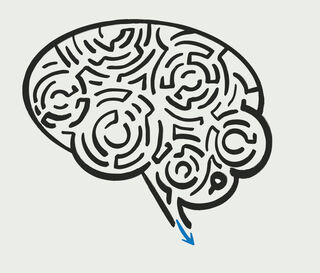Dreaming
Bad Dreams, and What to Do About Them
You have more bad dreams and nightmares than you think.
Posted May 19, 2021 Reviewed by Gary Drevitch
Sleep is “Nature’s soft nurse,” according to Shakespeare, but too often it is “Nature’s Nurse Ratched." Unhappiness doesn't restrict itself to the waking hours, and peaceful rest is too often denied to us.
A psychologist named Calvin Hall, born in Seattle at the turn of the last century, collected dreams as others collect seashells. By the time he died in 1985, Hall had gathered more than 50,000. His own college students provided many of the reports, but he also wrote about Kafka’s dreams and even those of a convicted child molester. In his reports, unpleasant emotions, such as fear, anger, and sadness (in order of descending frequency) were twice as likely as pleasant ones. For some reason, doors featured frequently in the dreams. There was more sex in men’s dreams than in women’s, but other themes were much more prevalent: Dreams about being attacked, for instance, were reported much more frequently than those with erotic content.
To make matters worse, research has also shown that we underestimate the frequency with which we suffer nightmares.

Happily, there are a few things one can do to help matters. The first is a little counterintuitive: Bad and vivid dreams may be the result of poor quality sleep, which can be improved by limiting the time we spend in bed. Sleep restriction has even been used as a treatment for depression, precisely because it is a simple way of improving sleep. It can be difficult to implement, however, particularly if one is feeling under the weather emotionally or very tired.
In some instances, medication can help. There is a curious therapeutic puritanism surrounding the prescription of drugs to aid sleep, as if a good night's sleep was something that could only be earned and never achieved by chemical means. My own view is that we shouldn't rule out the deployment of any of the weapons in our armory to combat psychological suffering.
Finally, there is something called Imagery Rehearsal Therapy, in which one consciously changes the ending to a nightmare while awake. This seems to reset the bad dream and make it more pleasant if it were to recur. There is something lovely about the idea of changing an ending at will. If only we could do that with all other things that end badly in life.


